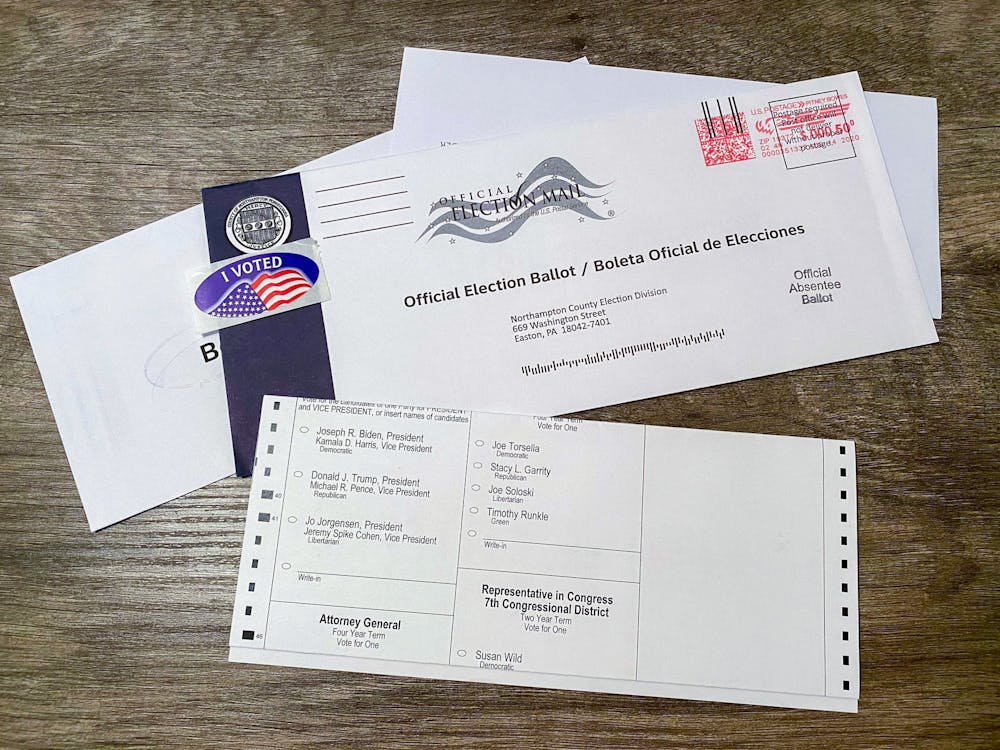
“I just can’t vote for either candidate.” From a TikTok trend of tearfully writing in candidates onto ballots to angry tweets from people refusing to vote this year, it is clear that this upcoming election presents an unpleasant dilemma for many voters. But trying to take the high road or deliver a message by boycotting the election is far from the right answer.
First off, boycotting an election as a form of protest against the system is only effective where the voter turnout rate is high or where voting is mandatory. In the US, where the voter turnout rate is regularly lower than 50%, this form of activism becomes lost in translation and is rendered insignificant.
The ethical issues are a bit trickier to dissect. I’m not here to shame anyone for making their own choices or ask anyone to break their own moral codes, but simply to ask everyone to consider the broader, long-lasting impacts of those choices. This article on Medium put it best by saying: “your conscience is what keeps you from doing things that feel good to you but hurt other people.” The people that keep preaching how neither candidate is “morally good” enough for them to vote for fall somewhere on the spectrum of being naive or privileged. If you think that your life can continue as is no matter which candidate wins, you are a very small, fortunate percentage of the population. Just know that the absence of your vote harms anyone in your life who is a woman, part of the LGBTQ+ community, an immigrant, disabled, or depends on the Affordable Care Act — just to name a few.
Now let’s talk more specifically about this election. Yes, both candidates are very far from perfect, but on nearly every critique from racism to sexism, the degree to which each candidate has committed offenses is incomparable. While even one sexual harassment or assault accusation is not something to be excused, a running record of over 25 different testimonials and a consistently unapologetic, vulgar persona is significantly more atrocious.
I’m not going to continue pushing the ‘lesser of two evils’ narrative because while it is certainly true, it’s not a convincing argument why someone should vote this year. Without telling you who to vote for, I will just present a few basic facts. One of the candidates has made nearly 20,000 false or misleading statements within his first term as President. One of these candidates has reversed 100 environmental policies, throwing science and our future down the drain. One of these candidates separated over 5,000 children from parents and left them in inhuman conditions alone. Now, let’s look at the other candidate. The other candidate is committed to protecting Roe V. Wade, closing the wage gap, and increasing support for victims of sexual assault. This candidate has tangible, long-term plans to combat climate change, reduce carbon emissions, and invest $2 trillion into green initiatives. Perhaps most significantly, this candidate would “bring back civility” and work towards reuniting a country that is more partisanly-divided than ever.
Let’s also briefly address third party voting. The conversation about America needing a third political party is definitely one to be had, but if there ever was a year to put that idea on hold, it would be this year. This is a pivotal year where millions of citizens’ basic human rights and the future of our planet are being threatened. In 2016, the 6% of people that voted third party helped Trump win the electoral college. We cannot make that same mistake this year.
By no means am I one to tell you not to follow your moral values, but just understand the repercussions of your actions: if not for yourself, then for your friends, family, and the future of our country.
VALERIE WANG is a Wharton first-year student studying Management and Business Analytics. Her email address is valwang@wharton.upenn.edu
The Daily Pennsylvanian is an independent, student-run newspaper. Please consider making a donation to support the coverage that shapes the University. Your generosity ensures a future of strong journalism at Penn.
Donate




